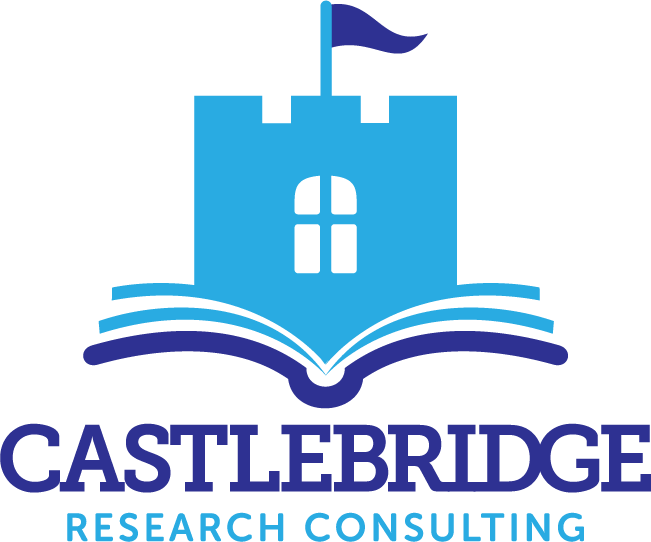Dissertation Consulting
The dissertation process can sometimes be complicated, slow, and inefficient—in a word, cumbersome. It can also last too long and be dull and monotonous—in a word, tedious. But dissertation research does not have to always be cumbersome and tedious. It can be life-giving for those who conduct it and for those who benefit from it. Our goal at CastleBridge Research Consulting, whether you are at a beginning or latter dissertation phase, is to help you connect with the life-giving aspects of your research all along the way—from conception through completion. To accomplish this, we offer individual mentoring services as well as cohort training sessions.
Individual Mentoring
For those who want to accelerate progress on their dissertation research, individual mentoring is the best option. Regardless of where you are in the research process, Dr. Debra Fisher will customize interactions aimed at expeditiously achieving your goal of an earned doctorate. For more than 15 years, Dr. Fisher has provided personalized mentoring to doctoral students/candidates from more than 20 countries who represented a multitude of academic disciplines and utilized traditional, online, and hybrid instructional delivery models. Collaborations (conference calls, video conferencing, email) are designed to ensure quality from prospectus through final oral defense. You will work closely with Dr. Fisher as she provides ongoing instruction, inspiration, and developmental support while you achieve specific objectives/tasks related to the three phases of research: conceiving, conducting, and communicating.
Conceiving Research
Identifying a researchable topic with scientific merit
Choosing a philosophical worldview (postpositivist, constructivist, transformative, pragmatic)
Searching the relevant literature
Selecting a research methodology (quantitative, qualitative, or mixed/blended)
Incorporating conceptual or theoretical frameworks
Describing the population, sample frame, and study sample
Conducting Research
Designing the study using quantitative (experimental, nonexperimental), qualitative (i.e., case study, phenomenology/phenomenography, narrative, ethnography, grounded theory) or mixed/blended procedures (i.e., convergent, explanatory sequential, exploratory sequential, transformative) approaches
Preparing the research proposal (aligning statement of the problem, purpose statement, and research questions/hypotheses; justifying scientific merit; providing ethical assurance)
Defending proposal before committee
Acquiring Institutional Review Board approvals
Collecting data using appropriate instruments
Analyzing data using appropriate methods (limited to qualitative analysis using the qualitative data analysis software program ATLAS.ti; referrals are made to a statistician for quantitative analysis)
Communicating Research
Reporting results/findings
Discussing results/findings
Describing implications for policy, practice, and research
Making recommendations for policy, practice, and future research
Defending dissertation study before committee
Cohort Training Sessions
Whether you are already participating in a university-assigned cohort or would like to join doctoral cohorts formed by CastleBridge Research Consulting, you are sure to benefit from tips and techniques related to objectives/tasks of the three phases of research described above: conceiving, conducting, and communicating. To schedule a complimentary training session for your university-assigned cohort or learn more about upcoming CastleBridge Research Consulting training sessions, contact Dr. Debra Fisher at Debra@CastleBridgeResearch.com or 623.879.6905. Training sessions are designed for three instructional delivery experiences: conference call, webinar, and in-person seminar.
“I learned this, at least, by my experiment; that if one advances confidently in the direction of his dreams, and endeavors to live the life which he has imagined, he will meet with a success unexpected in common hours.”

